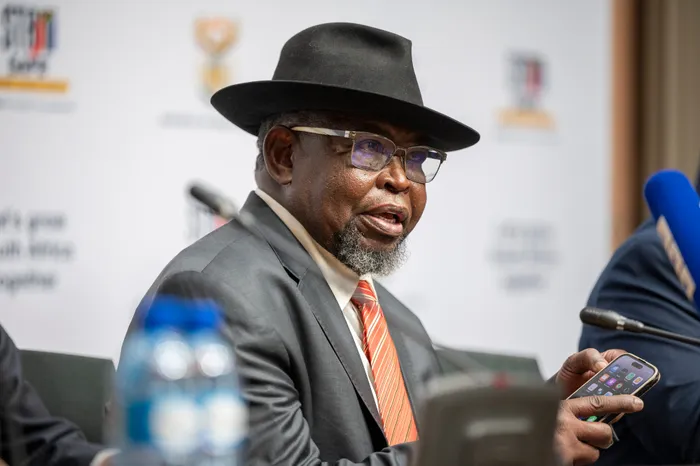VAT reversal: Govt’s R75bn hole will affect essential services and developmental objectives

Government will now have to find some other way of plugging a revenue hole of at least R75 billion after bowed to pressure and scrapped an increase in VAT.
Image: Armand Hough / Independent Newspapers
Government will now have to find some other way of plugging a revenue hole of at least R75 billion after it bowed to pressure and scrapped an increase in Value Added Tax (VAT), which economists said will have adverse effects on essential services such as teaching and nursing.
Seemingly overnight, National Treasury reversed course on a proposed 0.5 percentage point increase in VAT, which would have taken the tax to 15.5%.
Finance Minister Enoch Godongwana’s reversal means that other measures to cushion the poor against the proposed hike will have to be reversed, while “other expenditure decisions [will need to be] revisited,” the statement said.
Old Mutual chief economist, Johann Els, said the fact that VAT would not be increased “was not necessarily a win because R75 billion needs to be made up in some other way”.
This, said Els, could take the form of “significant cutbacks in spending that was planned, especially in terms of extra nurses and extra teachers, or some of the revenue components that were announced in terms of mitigating the pain of that for taxpayers”.
Els said some of the changes could include a petrol levy increase, while there might also be a reversal of additional goods being added to the VAT exempt basket.
In the March 12 National Budget – the second tabling of the revenue and expenditure framework after the February one wasn’t passed – National Treasury said it would expand the list of VAT zero-rated food items to include more meat and vegetable products.
Casey Sprake, economist Anchor Capital, told IOL that scrapping the VAT increase introduced a range of fiscal and economic challenges. While welcome news for consumers, it resulted in a significant deterioration of South Africa’s fiscal position, she said.
“Crucially, the social support measures that were designed to mitigate the regressive impact of the VAT hike – particularly for lower-income households – are now redundant and will likely be withdrawn. In their place, the government will need to identify alternative areas for fiscal adjustment, many of which may come at the expense of key developmental priorities,” said Sprake.
Sprake added that National Treasury will be compelled to implement expenditure cuts. These are most likely to affect frontline public services and infrastructure investment, which are sectors already under considerable pressure.
Els said that the proposed increase wouldn’t have been materially negative in terms of consumer spending or inflation, given measures to assist the poor. However, Investec chief economist Annabel Bishop had worked out that a 50bps increase this year as well as one in 2026 would have increased inflation by 0.25 percentage points for each year.
Inflation was 2.7% in March, down from 3.2% in February as it continued a declining trajectory.
Sprake added that there would be hidden costs for businesses that had begun updating their pricing systems, financial models, and customer communication strategies to accommodate the VAT change. They would now need to “undertake the same process in reverse,” she said.
“These operational disruptions translate into unnecessary compliance costs, lost productivity, and added complexity for the private sector; costs borne not by the state, but by the broader economy,” said Sprake.
The South African Chamber of Commerce and Industry said in a statement that “we are not yet convinced that enough expert work has been undertaken to investigate and look at expenditure throughout the government service”.
Sprake added that “this episode underscores a recurring concern: the economic cost of policy uncertainty and reactive governance.”
National Treasury’s backtracking of an increase followed the start of a court case on Tuesday in which both the Democratic Alliance and Economic Freedom Fighters – political polar opposites – took Godongwana as well as the South African Revenue Service to court to get the increase reversed. The parties had argued that the increase would harm the poor.
IOL Business
Related Topics:
